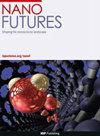克服未来安全纳米技术计算路线图中的障碍
IF 2.5
4区 材料科学
Q3 MATERIALS SCIENCE, MULTIDISCIPLINARY
引用次数: 6
摘要
纳米技术的迅速兴起导致了含有纳米材料的产品数量的同时增加。纳米材料相对于本体表现出的不同寻常的特性引起了人们的强烈研究兴趣,并相对迅速地被工业界采用。监管机构负责保护工人、公众和环境免受纳米材料的任何不利影响,这些不利影响也可能因这些新的物理和化学特性而产生。他们需要数据和模型,使他们能够标记出可能令人担忧的纳米材料,同时平衡商业创新的潜在扼杀。安全纳米技术的未来路线图早在十多年前就已经确定,但这些研究中发现的许多障碍仍然存在。在这里,我们讨论了仍然阻碍信息学和预测计算纳米毒理学方法有效应用的障碍,这些障碍无法为纳米材料监管机构提供更有效的指导,也无法为工业提供安全的设计依据。我们描述了纳米材料高通量合成、表征和生物评估的发展将如何克服其中的许多障碍,从而实现有效但安全的设计纳米材料的计算设计的明确路线图。本文章由计算机程序翻译,如有差异,请以英文原文为准。
Overcoming roadblocks in computational roadmaps to the future for safe nanotechnology
The rapid rise of nanotechnology has resulted in a parallel rise in the number of products containing nanomaterials. The unusual properties that nano forms of materials exhibit relative to the bulk has driven intense research interest and relatively rapid adoption by industry. Regulatory agencies are charged with protecting workers, the public, and the environment from any adverse effects of nanomaterials that may also arise because of these novel physical and chemical properties. They need data and models that allow them to flag nanomaterials that may be of concern, while balancing potential stifling of commercial innovation. Roadmaps for the future of safe nanotechnology were defined more than a decade ago, but many roadblocks identified in these studies remain. Here, we discuss the roadblocks that are still hindering the effective application of informatics and predictive computational nanotoxicology methods from providing more effective guidance to nanomaterials regulatory agencies and safe-by-design rationale for industry. We describe how developments in high throughput synthesis, characterization, and biological assessment of nanomaterials will overcome many of these roadblocks, allowing a clearly defined roadmap for computational design of effective but safe-by-design nanomaterials to be realized.
求助全文
通过发布文献求助,成功后即可免费获取论文全文。
去求助
来源期刊

Nano Futures
Chemistry-General Chemistry
CiteScore
4.30
自引率
0.00%
发文量
35
期刊介绍:
Nano Futures mission is to reflect the diverse and multidisciplinary field of nanoscience and nanotechnology that now brings together researchers from across physics, chemistry, biomedicine, materials science, engineering and industry.
 求助内容:
求助内容: 应助结果提醒方式:
应助结果提醒方式:


